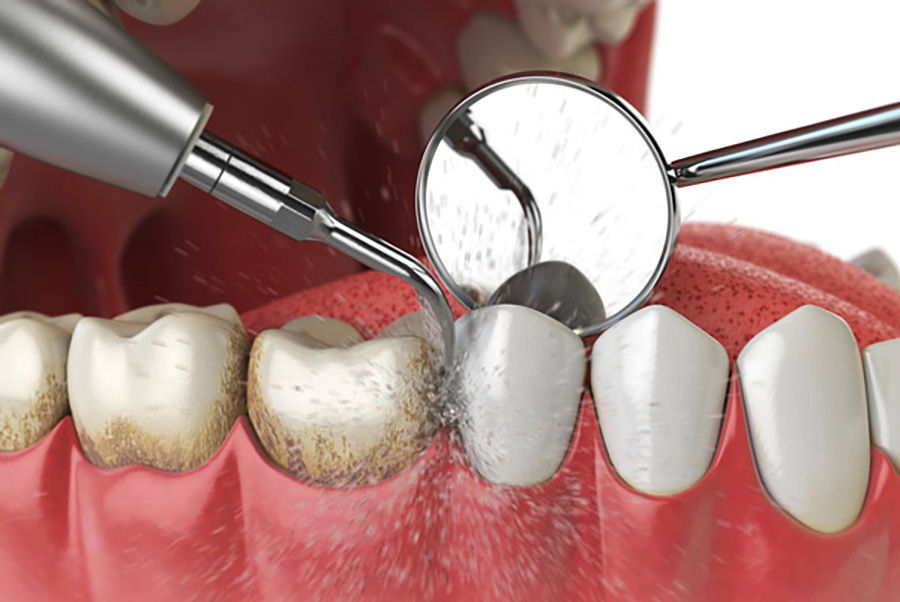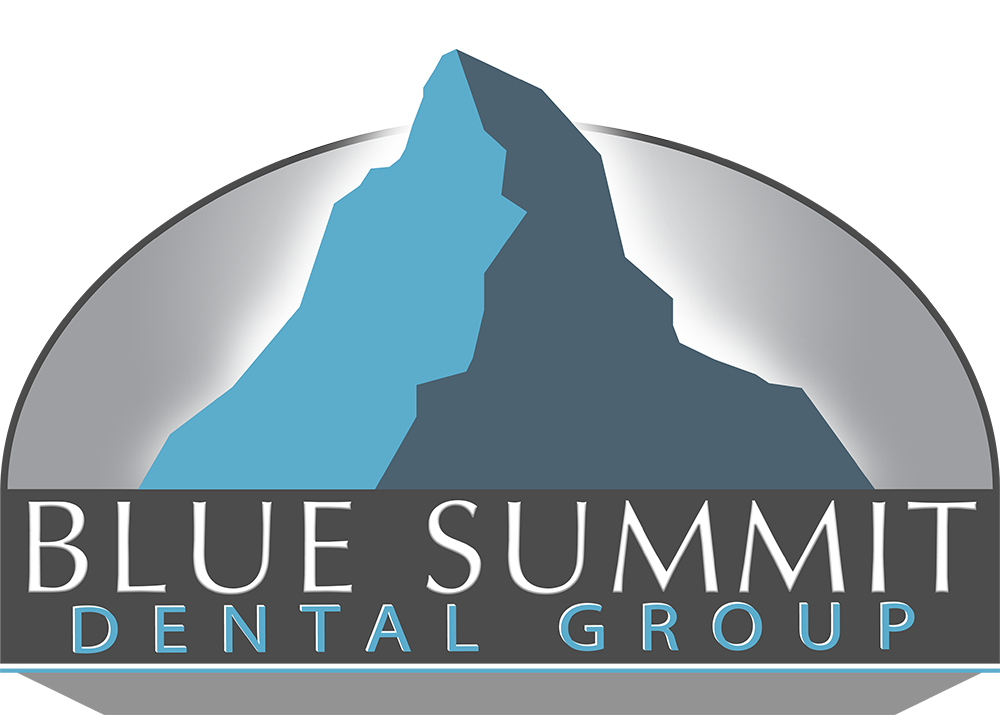Preventive Gum Disease Therapy
Gum Disease Therapy

To keep your mouth healthy, the American Dental Association, or ADA, recommends that you brush and floss every single day. It is also essential to have your teeth professionally cleaned and examined twice a year. Ignoring any part of this oral care routine can greatly increase your risk of developing issues such as gum disease. If gum disease occurs, it can have detrimental effects on your mouth, including loose teeth and tooth loss, if it goes untreated. At Blue Summit Dental Group, we can treat your gum disease, stop its progression, and help to restore your oral health with gum disease therapy.
What Is Gum Disease?
Gum disease, also called periodontal disease, is a serious, progressive disease that affects the health of your gums, your teeth, and the supporting structures of your teeth. It is caused by irritation of the gums by oral bacteria and plaque. When the gums are irritated, they become swollen. This early stage often goes unnoticed, and therefore untreated. Eventually, the tissue begins to pull away from your teeth, leading to the formation of periodontal pockets, or gaps between your gums and your teeth. These pockets easily trap bacteria and other debris. The bacteria continue to attack your gums, but also begin attacking your periodontal ligaments, the structures that hold your teeth secure, and your jawbone. These structures gradually begin to weaken, leading to loose teeth. Ultimately, gum disease can result in tooth loss.
What Is Gum Disease Therapy?
While the earliest stage of gum disease can be reversed with proper oral care, this stage is often missed. After advancing past gingivitis, gum disease requires professional care. The sticky film that accumulates on your teeth, known as plaque, hardens into tartar, or calculus. This calcified substance cannot be removed, no matter how often you brush. Additionally, it is impossible to eliminate the bacteria and debris that has fallen below the gumline into periodontal pockets. We can help.
While many treatments for gum disease can be invasive, with some requiring surgical procedures, gum disease therapy is different. This is a non-invasive treatment that uses a procedure is known as scaling and root planing. Scaling and root planing is essentially a deep cleaning of all surfaces of your teeth. Scaling involves the scraping of the visible surfaces of your teeth, with special attention paid to the gumline and just below it. Root planing is the cleaning of the roots of your teeth. We smooth their surfaces, eliminating plaque, bacteria and other toxins, and making it difficult for new bacteria to adhere. After the teeth have been cleaned, an antibacterial rinse is administered below the gumline to kill anything that might be lingering. Scaling and root planing is often done under a local anesthetic, as swollen gums may be quite sensitive. After your treatment is over, we schedule you for a follow up in 6 to 8 weeks.
Periodontal Maintenance After Gum Disease Therapy
Depending on the severity of your situation, a single scaling and root planing may not be enough to thoroughly clean your teeth and gums. If any bacteria remain, the destruction of your gums, your teeth, and their supporting structures will continue. In cases like this, periodontal maintenance may be recommended.
Periodontal maintenance is a series of regularly scheduled exams and deep cleanings. Your situation will determine their frequency. Some people need appointments every two months, while others can go six months between visits. We perform a thorough exam, checking your gums, measuring periodontal pockets, and noting buildup. We also take x-rays to check the condition of your teeth and your jaw below the gums. After your teeth have been examined, they are cleaned, eliminating the buildup that has accumulated since your last visit.
If you have gum disease, getting treatment right away is essential. Call Blue Summit Dental Group at (810) 658-9177 today for more information, and to schedule your appointment to find out if gum disease therapy is right for you.
